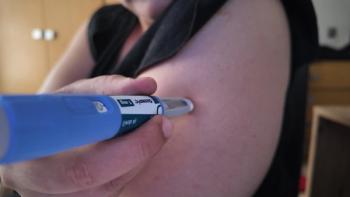
Retevmo Shows Improvement for Previously Treated Patients With Non-Small Cell Lung Cancer
Previously treated patients with non-small cell lung cancer tended to have better responses with Retevmo than they did with prior treatments.
Retevmo (selpercatinib) demonstrated response improvements in previously treated patients with RET fusion-positive non-small cell lung cancer (NSCLC), according to findings presented at the virtual 2021 ASCO Annual Meeting.
“However, results should be interpreted with caution, as a limitation of this analysis was that immediate prior response assessment was based on physician-reported best response in patients’ medical history and may not follow RECIST criteria,” the researchers said.
This study consisted of 218 evaluable patients (median age 61 years) who previously received platinum-based chemotherapy. The majority had an ECOG (or the measurement to describe a patient’s level of functioning in terms of ability to care for themselves, daily activity and physical ability; with zero being fully active and four being disabled) of 0/1, with an average of two (range: 1-15) prior systematic therapies, across 89 sites in 16 countries.
The primary endpoint of the study was objective response rate (or the rate of a measurable response to the treatment), with secondary endpoints of progression-free survival (time during and after treatment when the patient lives without disease progression), duration of response (or the length of time that a tumor continues to respond to treatment without the cancer growing or spreading) and safety.
The study compared each patient’s best overall response to their prior therapy to the response elicited from Retevmo.
The objective response rate with Retevmo was 57% which was “markedly higher,” the researchers wrote, than responses for prior treatment at 16%.
A total of 108 patients (50%) did not respond to prior therapy but did respond to Retevmo. There were 16 patients (7%) who responded to both Retevmo and prior therapy, 18 patients (8%) who responded to prior therapy but not Retevmo and 76 patients (35%) who did not respond to either.
Objective response rate was improved regardless of prior therapy, chemotherapy plus immune checkpoint inhibitor (57% versus 14%), single-agent immune checkpoint inhibitor (48% versus 3%) or chemotherapy (58% versus 15%).
Fewer patients had progressive disease with Retevmo best overall response (2%), compared with immediate prior therapy (28%). Median duration of response was also longer compared with prior therapy, with an average of 11.8 months versus 3.4 months.
“A global, randomized, phase 3 trial (LIBRETTO-431; NCT04194944) evaluating (Retevmo) compared with standard frontline therapy (Altima/ carboplatin with or without Keytruda) is ongoing,” the researchers concluded.
For more news on cancer updates, research and education, don’t forget to
Newsletter
Knowledge is power. Don’t miss the most recent breakthroughs in cancer care.


































